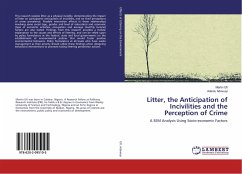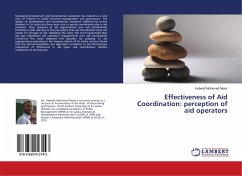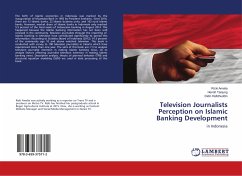This research isolates litter as a physical incivility, demonstrating the impact of litter on participants' anticipation of incivilities, and on their perceptions of crime prevalence. Possible interaction effects in these relationships involving some social (age, gender and level of education) and economic (type of economic activities, occupation and average monthly income) factors are also tested. Findings from this research provides a holistic explanation to the causes and effects of littering, and can be relied upon by policy formulators at the federal, state and local governments on the establishment of environmental policies that would foster positive environmental behaviors. Policy formulators at all levels who have waste management as their priority should utilize these findings when designing behavioral interventions to promote taking littering prevention actions.
Bitte wählen Sie Ihr Anliegen aus.
Rechnungen
Retourenschein anfordern
Bestellstatus
Storno








